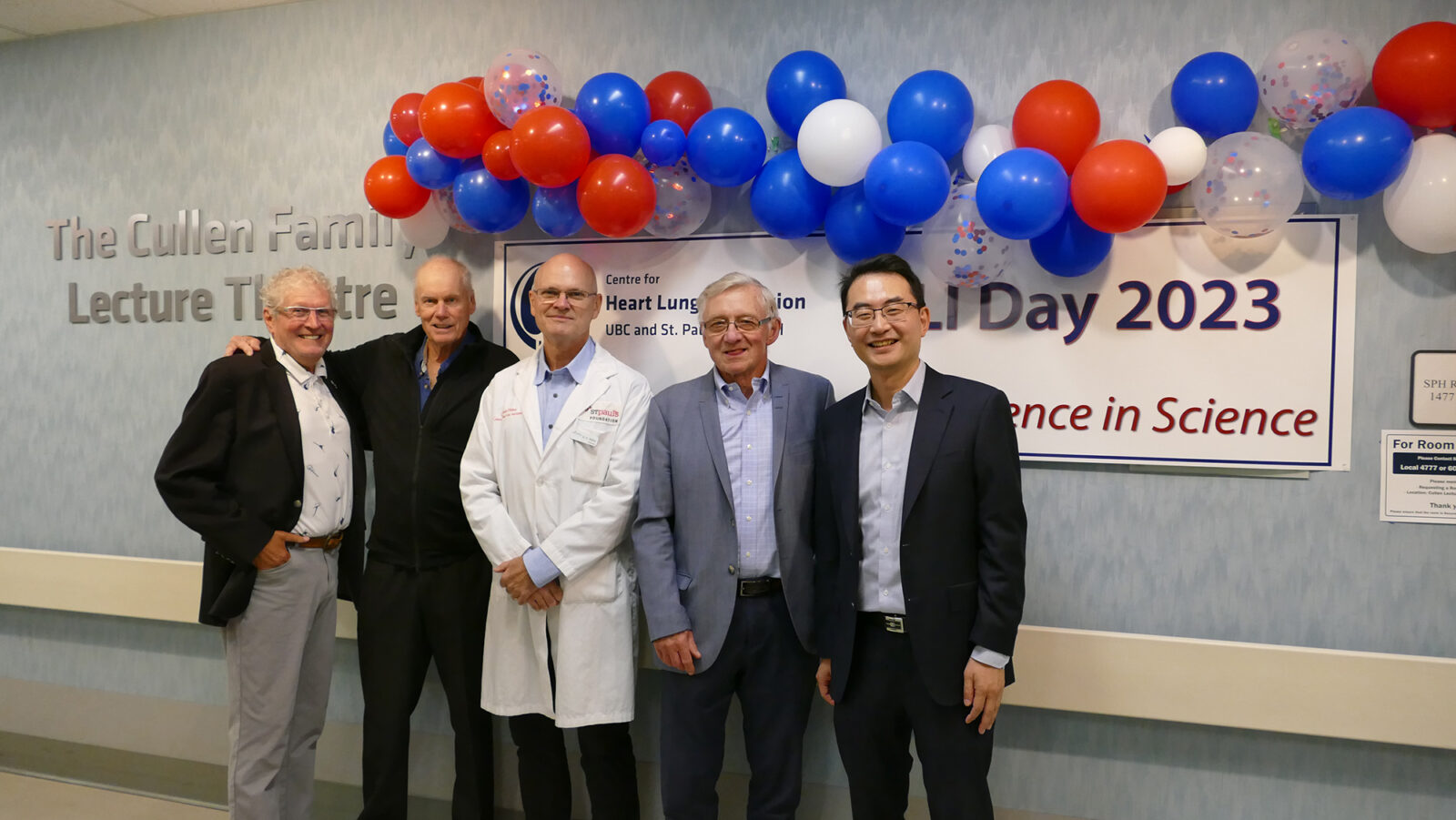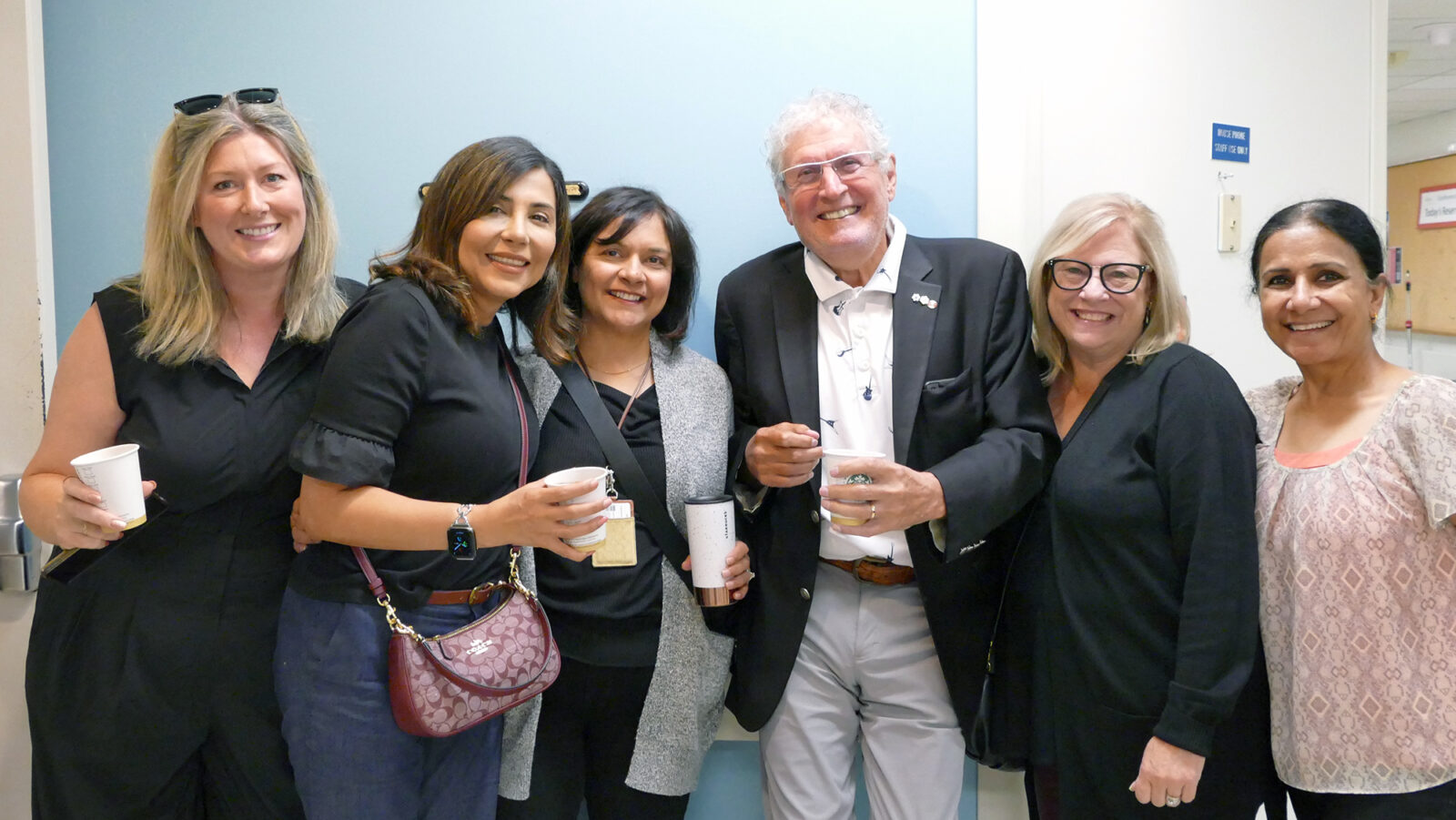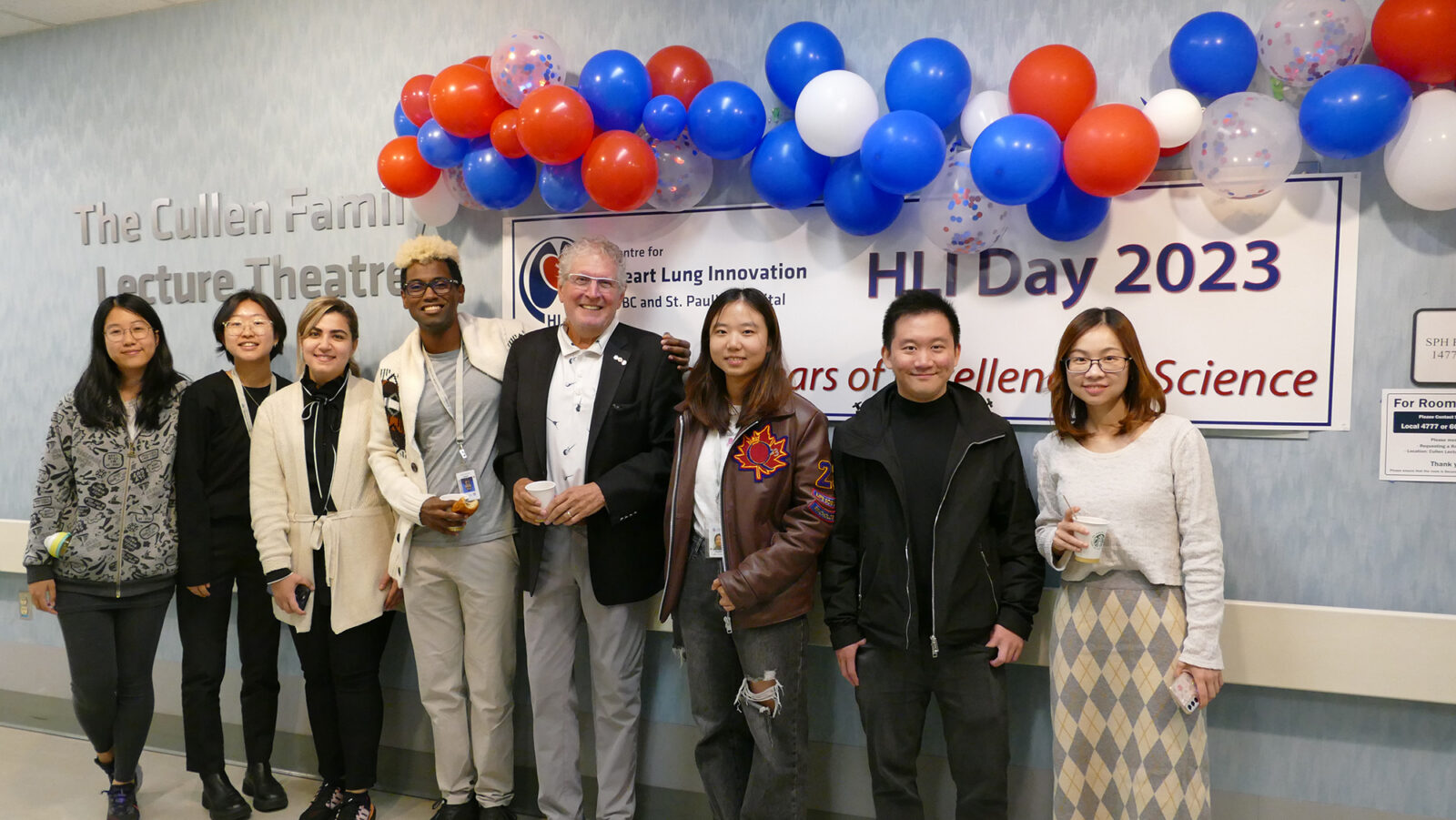
This past year, HLI celebrated 46 years of excellence in science. In 2023, the inaugural HLI Day was held to recap the past, celebrate the present, and anticipate the future of our centre. As HLI approaches its 50th birthday, we plan on organizing HLI Day every two years.
In 1977, Dr. Jim Hogg, accompanied by Dr. Peter Paré, was recruited from McGill University to UBC to start the Pulmonary Research Laboratory. In his talk, Dr. Paré rolled back the years, telling the audience: “I marveled at [Dr. Hogg]’s courage. I was reluctant to follow him, but then he said ‘Stick with me kid, and you’ll be farting through silk!’” The rest was history; the beginning of 30 years of collaboration and friendship.

At HLI, we pride ourselves in being a centre that bridges the gap between basic science and clinical knowledge, which would not be possible solely through the efforts of our PIs. Lisa Baile, another founding member of the Pulmonary Research Laboratory, compared HLI to the tip of an iceberg: “HLI would not be where it is today without the solid foundation of excellence provided by its support staff,” she said, “it is what’s underneath the iceberg that keeps it afloat and visible.”
That connection from top to bottom at HLI is why many staff consider themselves “lifers” who wish to stay at the centre for as long as possible. Dr. Gurpreet Singhera, registry manager of the Bruce McManus Cardiovascular Biobank with over 23 years of experience at HLI, explains that it is because of our culture of camaraderie: “It’s that family feeling, that sense of belonging, and on top of that, we are contributing to the greater scientific good.”

In addition to our PIs and staff, much of HLI’s work consists of providing opportunities for education and training for our students and trainees. The HLI Trainee Association, established in 2018, has since organized new scholarships, awards, events, and the Mentorship Program to enhance the academic experience for students, giving them opportunities to flourish and connect in ways that were previously unavailable. Students and trainees have now taken the reins on organizing our annual HLI Research Day, with knowledge translation at the forefront of their priorities. In conjunction with the EDI Committee, the Trainee Association has also worked to support students’ mental wellbeing, with plans for an online resource hub and self-governing collective model on the horizon.

Over the next decade, the HLI looks to put the centre in a position to take advantage of the top advances in health innovation to phenotype and treat diseases. Using the evolution of the St Paul’s Hospital building as an example, Dr. Tillie Hackett stressed that adaptability is key to HLI’s future.
“Science is best done when we have an open mind,” she said. “It’s important to listen to others. Don’t be afraid to have your ideas challenged.”
At the turn of the 20th century, colour revolutionized the film industry. The technology had its sceptics and believers, but in the end, those who failed to keep up faded from the spotlight.
Dr. Hogg was a believer, and he still is, in the future of health care.
“Let’s just dream in Technicolor.”

